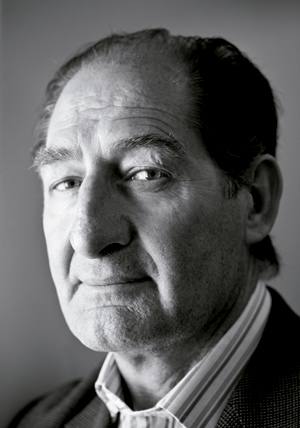
- Brian CURRIN experienced in particular the end of the armed activity by ETA. The South African lawyer is playing a major role throughout the process. As he has said, the next steps will be taken in the order of the Aiete statement.

What do you think of ETA’s statement?
The declaration is the one requested. There is no ambiguity. ETA says it has ended armed violence. That is what six international leaders also asked him for.
According to the peace conference, the movement of the file now falls to the governments of Spain and France.
Yes, that's right. The second point says that they should respond positively to ETA’s statement and start dialogue with ETA to discuss the consequences of violence. There's a lot to talk about, and it's going to take time. This is the next step.
Will the process therefore lead to the order marked by the conference points?
Yes, the steps will be taken according to the conference. We have to build trust before and the ETA statement is for that. Subsequently, the adoption of these measures will include a dialogue on the consequences and, once this has been done, we will proceed to address the third paragraph.
What do we have to wait for now, the response of these two governments?
I imagine that both will respond in the affirmative to the request of international leaders. I do not think they would have asked for something that Spain or France could not do. The political context must be set after the ETA declaration. It is a real opportunity to put an end to the peace process. Any responsible government would accept the second point of the conference.
Before the elections?
Yes. I believe that the Socialist Party and the People’s Party are managing the end of ETA at the same time, and that has national interests for them. This can be interpreted from Rajoy's statements. I think so.
I wanted to ask him about Rajoy. The discourse of pp has changed a lot.
Yes, it is normal for a party in opposition to change its discourse when it comes to power. They must then defend the interests of all citizens, and I believe that when the pp reaches the government they will have a constructive attitude. I am sure of that.
In an interview published a year and a half ago in Argia, he told us that there was not enough confidence to start multilateral talks. Is there trust now?
Now, of course, there's more. The latest ETA communiqué has contributed to this. Dealing with the consequences of the conflict between ETA and the Government of Madrid will still generate more. These discussions will now be much easier than those held in the past between ETA, the Abertzale Left and the Spanish Government. In the past, there had always been a risk of a return to violence, which made the talks very difficult. Now that doesn't exist, and I think they have great chances of building trust.
Do you have any news of Arnaldo Otegi?
Not lately. Those arrested for the alleged link with the existence of ETA must be released from their charges. I am referring to those who have not been mixed up in violence. In addition, in my view, some should be released as soon as possible: those who have been in favour of pursuing exclusively peaceful paths. It's one of those Arnaldo.
When will it end your work?
My work comes from the request of the parties in Euskal Herria, and there is now an opportunity to launch a dialogue between the different parties. The road map provides for international support and, if they so request, I am sure the International Contact Group will do so at ease. That work may last for years.
How do you feel personally about the improvement you've made since the first time you came?
I am very happy. The statement on Thursday was very positive. In Euskal Herria I made friends and the statement yesterday touched me a lot. I wish you all the best and I believe that Basque society deserves what happened yesterday.